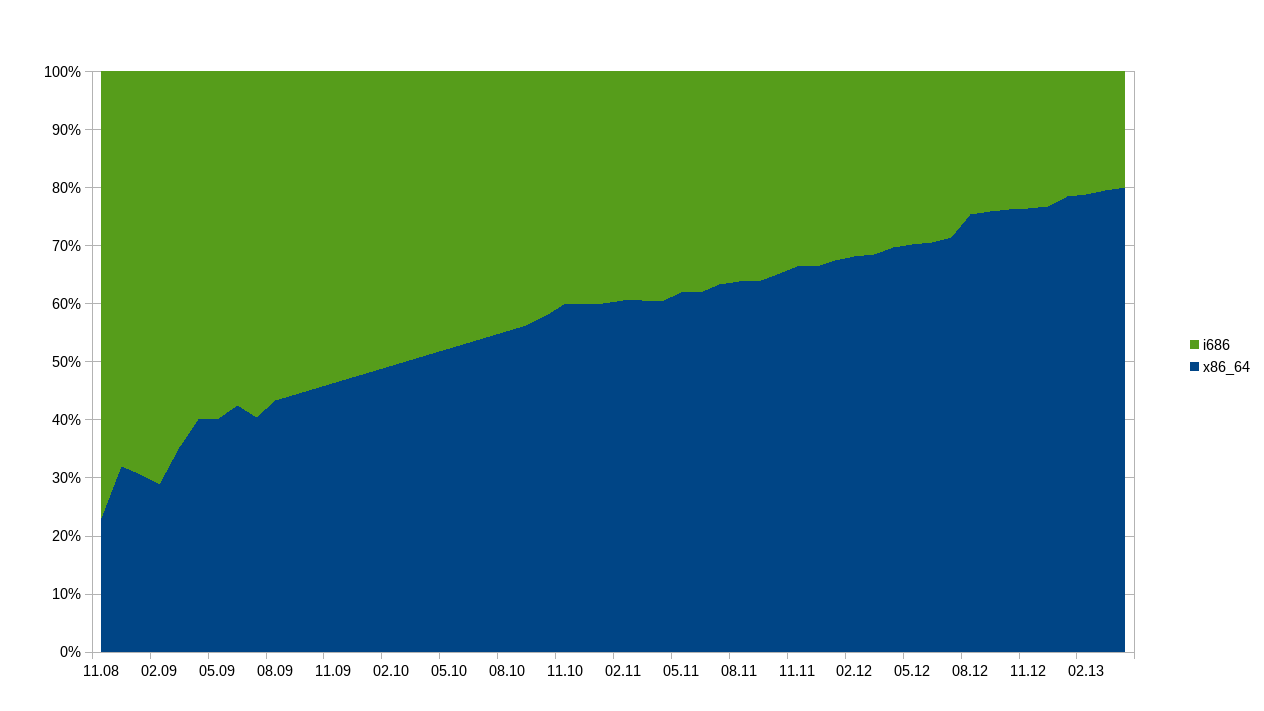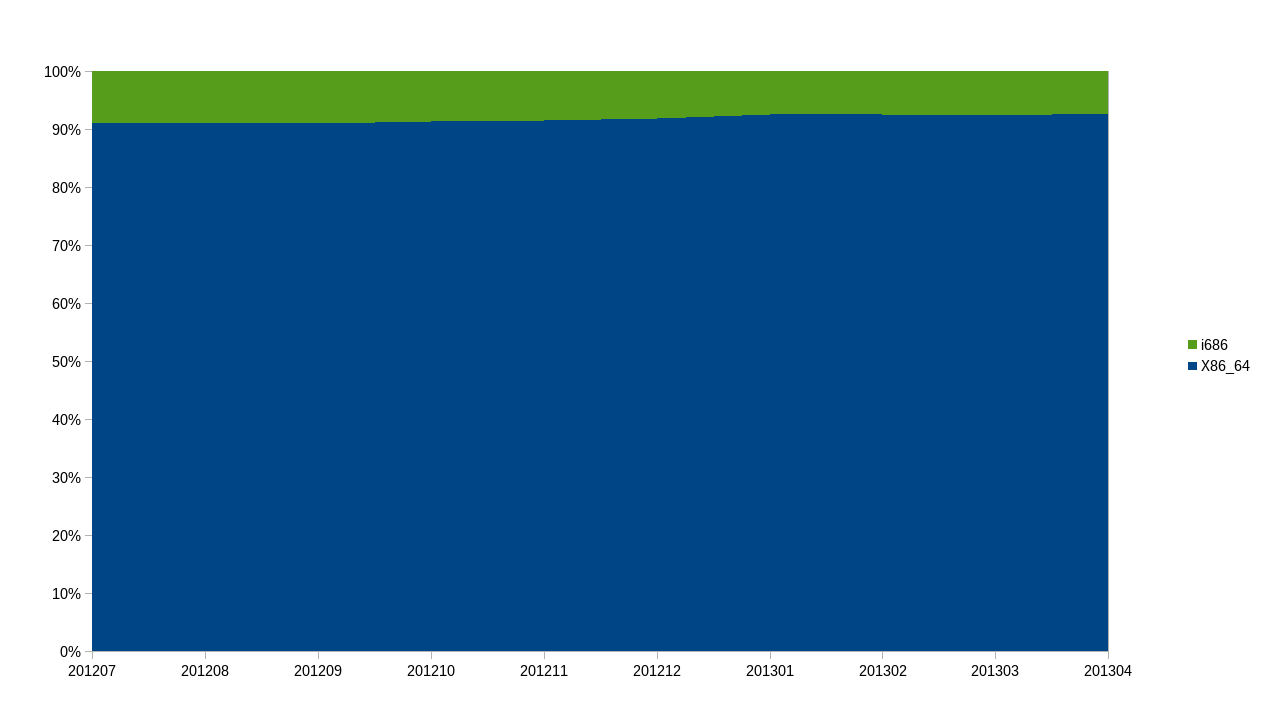The first 64 Bit x86 CPU was released ten years ago: the AMD Opteron. Intel followed with compatible processors about one year later. Another two years later, in 2006, a first port of Arch Linux to the x86_64 platform was available. Starting outside the official repositories, the new architecture was merged into the Arch project and became a first class citizen within the following years. Right from the start it was designed as a pure 64 Bit system and kept in sync with the i686 tree. That also meant no multilib support at first and every package was compiled for x86_64.
Of course getting there was not that easy. Our repositories and tools like pacman did not have any concept of different architectures. While most software would just work fine when compiled for x86_64, we occasionally ran into issues that were specific to the 64 Bit architecture.
Years later the relation between 32 and 64 bit architecture seem to have switched roles. Developers have chosen x86_64 as their primary platform, our i686 packages seem to get tested by less users and we see issues specific to the 32 Bit architecture. We recently relaxed our signoff policy for i686 packages in order to counteract this trend and avoid holding back development due to lack of testing.
To back these observations with some numbers, I analyzed the architecture submitted by users via pkgstats over the past few years. Even if we assume that these data are not absolutely accurate and I could not find all the data gathered between 2009 and 2010, the results are clear: While the x86_64 version of Arch Linux was installed by only 20% of our users in 2008, its usage grew to 80% in 2013. It is fair to say that within the next years i686 usage will fade away.

Architecture Usage by Date
For a few month we also collect data about the actual CPU architecture users have. Right now about 93% operate a CPU that would be capable of running a 64 Bit system. There is not much data yet, but it seems to be a slowly rising number.

Architecture Usage by Date
We are pretty close to the point where i686 Arch Linux installations have been almost completely replaced by x86_64. This of course means that it might no longer be practical to provide support for an architecture that is barely used. The question is not if 32 bit support might be dropped, but when.
Don’t Panic! I don’t see us dropping i686 support this year, but I would not dare to predict anything beyond that date. As always these decision are not based on business or politics. We will see when i686 usage will drop below a critical number and developers loose interest in packaging and supporting that architecture.